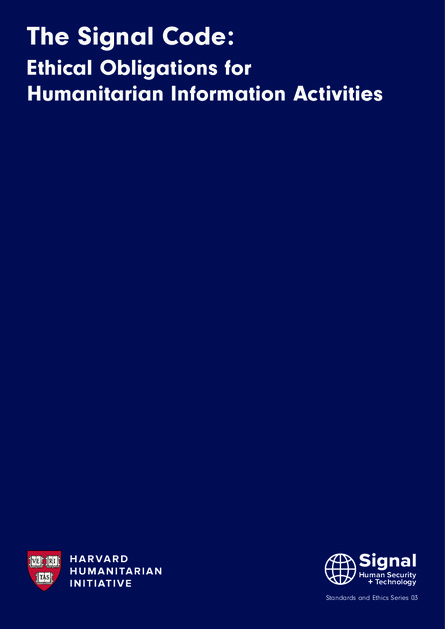
Humanitarian action is at a crossroads. The rapid emergence and adoption of digital information communication technologies (ICTs), combined with increasing dependence on digital data across all sectors of society, has redefined the nature of how emergencies unfold and fundamentally changed the roles that humanitarian actors and affected populations play before, during, and after a crisis occurs.
The networked age has brought with it operational, technical, legal, and ethical questions that exceed the scope of existing humanitarian principles and ethical, moral, and legal frameworks. As a result, humanitarian actors are now doing their work without sufficient and agreed ethical guidance specific to the current and potential future use of information, data, and ICTs. Technological change is not the only factor challenging the relevance and suitability of the ethical frameworks available to humanitarian practitioners.
The increasingly prominent and commonplace reliance on partnerships with private sector actors to support the use of ICTs and data in humanitarian response, establishment of data sharing agreements with Governments, and engagement in research and development activities with a wide range of non-humanitarian actors is affecting the longstanding definitions of humanitarian independence and humanitarian space. At the same time, affected populations themselves are more connected than ever before, allowing for more active agency through the very technologies on which humanitarians are ever more reliant.